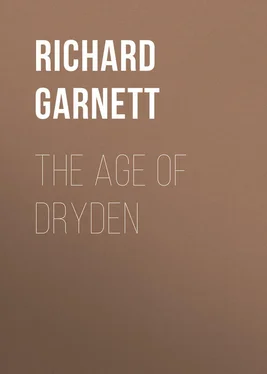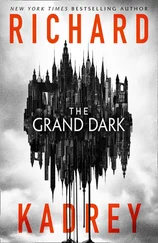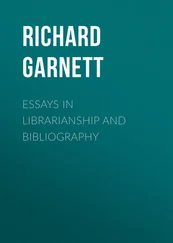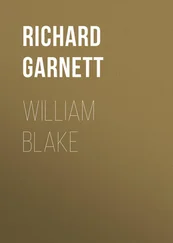Richard Garnett - The Age of Dryden
Здесь есть возможность читать онлайн «Richard Garnett - The Age of Dryden» — ознакомительный отрывок электронной книги совершенно бесплатно, а после прочтения отрывка купить полную версию. В некоторых случаях можно слушать аудио, скачать через торрент в формате fb2 и присутствует краткое содержание. Жанр: foreign_antique, foreign_prose, на английском языке. Описание произведения, (предисловие) а так же отзывы посетителей доступны на портале библиотеки ЛибКат.
- Название:The Age of Dryden
- Автор:
- Жанр:
- Год:неизвестен
- ISBN:нет данных
- Рейтинг книги:4 / 5. Голосов: 1
-
Избранное:Добавить в избранное
- Отзывы:
-
Ваша оценка:
- 80
- 1
- 2
- 3
- 4
- 5
The Age of Dryden: краткое содержание, описание и аннотация
Предлагаем к чтению аннотацию, описание, краткое содержание или предисловие (зависит от того, что написал сам автор книги «The Age of Dryden»). Если вы не нашли необходимую информацию о книге — напишите в комментариях, мы постараемся отыскать её.
The Age of Dryden — читать онлайн ознакомительный отрывок
Ниже представлен текст книги, разбитый по страницам. Система сохранения места последней прочитанной страницы, позволяет с удобством читать онлайн бесплатно книгу «The Age of Dryden», без необходимости каждый раз заново искать на чём Вы остановились. Поставьте закладку, и сможете в любой момент перейти на страницу, на которой закончили чтение.
Интервал:
Закладка:
There are few English writers of eminence whom it is so difficult to realize satisfactorily to the mind’s eye as Dryden. Personal enough in one respect, his writings are singularly impersonal in another; he never paints, and seldom reveals himself, and the aid which letters or reminiscences might have afforded is almost entirely wanting. No one noted his conversation; his enemies’ attacks and his friends’ panegyrics are equally devoid of those traits of character which might have invested a shadowy outline with life and substance. The nearest approach to a portrait is Congreve’s, which leaves most of the character in the shade, and even this is somewhat suspicious, for Congreve was Dryden’s debtor for noble praise, and the vindication of Dryden’s repute had been imposed upon him by the poet himself. The qualities, however, which he commends are such as seem entirely reconcilable with the lymphatic temperament which, partly on his own authority (‘my conversation,’ he says, ‘is slow and dull, my humour saturnine and reserved’), we have seen reason to attribute to Dryden. We are told of his humanity and compassion, of his readiness to forgive injuries, of a friendship that exceeded his professions, of his diffidence in general society and horror of intrusiveness, of his patience in accepting corrections of his own errors, of which he must be allowed to have given a remarkable instance in his submission to Jeremy Collier. All these traits give the impression of one who, though by no means pedantic, was only a wit when he had the pen in his hand, and entirely correspond with his apparent aversion to intellectual labour, except under the pressure of want or the stimulus of Court favour. When at length he did warm to his work, we know from himself that thoughts crowded so rapidly upon him that his only difficulty was to decide what to reject. Such a man may well have appeared a negative character to his contemporaries, and the events of his life were not of a nature to force his virtues or his failings into notice. We can only say that there is no proof of his having been a bad husband; that there is clear evidence of his having been a good father; and that, although he took the wrong side in the political and religious controversies of his day, this is no reason why he may not, according to his light, have been a good citizen. His references to illustrious predecessors like Shakespeare and Milton, and promising young men like Congreve, indicate a real generosity of character. The moral defects of his writings, coarse licentiousness, unmeasured invective, and equally unmeasured adulation, belong to the age rather than to the man. On the whole, we may say that he was one whom we should probably have esteemed if we could have known him; but in whom, apart from his writings, we should not have discovered the first literary figure of his generation.
Dryden’s early poems, the Heroic Stanzas on the death of Cromwell, the Astraea Redux on the Restoration, the panegyric of Clarendon, and the verses on the Coronation, are greatly marred for modern readers by extravagant conceits, but are sobriety itself compared to the exploits of contemporary poets, especially the Pindaric. In a more important particular, Dryden, as Scott remarks, has observed a singular and happy delicacy. The topic of the Civil War is but slightly dwelt on; and, although Cromwell is extolled, his eulogist abstains from any reflections against those through whom he cut his way to greatness. Isolated couplets in the other poems occasionally display that perfection of condensed and pointed expression which Dryden habitually attained in his later poems:
‘Spain to your gift alone her Indies owes;
For what the powerful takes not, he bestows:
And France, that did an exile’s presence fear,
May justly apprehend you still too near.’ — Astraea Redux.
These early attempts, however, were completely thrown into the shade by the Annus Mirabilis , a poem on the memorable events of 1666, written at Charlton, near Malmesbury, the seat of Lord Berkeley, where Dryden and his family had resorted in 1665 to escape the plague, and published in February, 1667. The author was then thirty-five, and, judged in the light of his subsequent celebrity, had as yet achieved surprisingly little either in quantity or quality. Youth is generally the most affluent season of poetical activity; and those poets whose claim to inspiration is the most unimpeachable – Spenser, Milton, Wordsworth, Shelley – have irradiated their early writings with flashes of genius which their maturer skill hardly enabled them to eclipse. This cannot be said of Dryden, who of our great poets, unless Pope be an exception, probably owed least to inspiration and most to pains and practice. Even Pope at this age had produced The Rape of the Lock , The Temple of Fame , Eloisa to Abelard , and his translation of the Iliad, enough to have given him a high place among English poets. The Annus Mirabilis was the first production of Dryden that could have insured him remembrance with posterity, and even this is sadly disfigured with conceits. After all, the poet finds only two marvels of his wonderful year worthy of record – the Dutch war, which had been going on for two years, and which produced a much greater wonder in the year ensuing, when the Dutch sailed up to Gravesend and burned the English fleet; and the Great Fire of London. The treatment of the former is very tedious and dragging; there are many striking lines, but more conceits like the following, descriptive of the English attack upon the Dutch East Indiamen:
‘Amidst whole heaps of spices lights a ball,
And now their odours armed against them fly;
Some preciously by shattered porcelain fall,
And some by aromatic splinters die.’
The second part, treating of the Fire of London, is infinitely better. Dryden exhibits one of the most certain marks of a good writer, he rises with his subject. Yet there is no lack of absurdities. The Deity extinguishes the conflagration precisely in the manner in which Dryden would have put out his own candle:
‘An hollow crystal pyramid he takes,
In firmamental waters dipt above;
Of it a broad extinguisher he makes,
And hoods the flames that to their quarry drove.’
Nothing in Dryden is more amazing than his inequality. This stanza is succeeded by the following:
‘The vanquished fires withdraw from every place,
Or, full with feeding, sink into a sleep;
Each household genius shows again his face,
And from the hearths the little Lares creep.’
Other quatrains are still better, as, for instance, this on the burning of St. Paul’s:
‘The daring flames peeped in, and saw from far
The awful beauties of the sacred quire;
But since it was profaned by civil war,
Heaven thought it fit to have it purged by fire.’
A thought so striking, that the reader does not pause to reflect that the celestial sentence would have been equally applicable to every cathedral in the country. Perhaps the following stanzas compose the passage of most sustained excellence. In them, as in the apostrophe to the Royal Society, in an earlier part of the poem, Dryden appears truly the vates sacer , and his poetry becomes prophecy:
‘Methinks already from this chymic flame
I see a city of more precious mould;
Rich as the town which gives the Indies name,
With silver paved, and all divine with gold.
‘Already labouring with a mighty fate
She shakes the rubbish from her mounting brow,
And seems to have renewed her charter’s date,
Which heaven will to the death of Time allow.
Интервал:
Закладка:
Похожие книги на «The Age of Dryden»
Представляем Вашему вниманию похожие книги на «The Age of Dryden» списком для выбора. Мы отобрали схожую по названию и смыслу литературу в надежде предоставить читателям больше вариантов отыскать новые, интересные, ещё непрочитанные произведения.
Обсуждение, отзывы о книге «The Age of Dryden» и просто собственные мнения читателей. Оставьте ваши комментарии, напишите, что Вы думаете о произведении, его смысле или главных героях. Укажите что конкретно понравилось, а что нет, и почему Вы так считаете.












